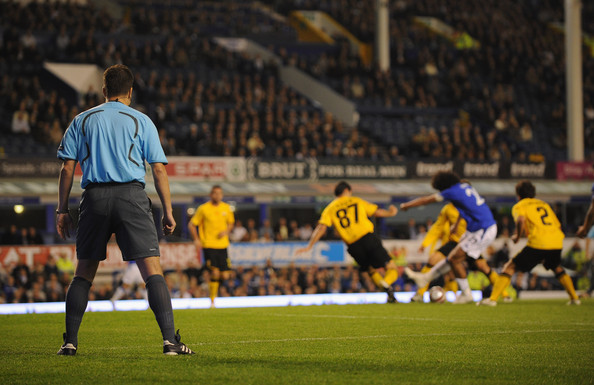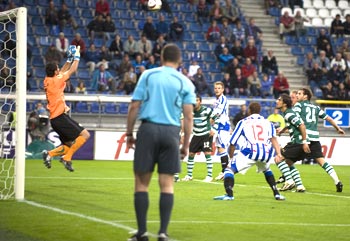By Duncan Mackay
December 19 – The experiment of having an additional assistant referee (AAR) in top international matches has been only a partial success, a review published by the League Managers Association (LMA) has concluded.
They have been reviewing the introduction of the AAR in the Europa League group stage, where they were introduced to enhance the control of the match in accordance with the Laws of the Game, particularly inside the penalty area or where they have a better view than the referee.
It has been claimed that if there had been an AAR in Ireland’s crucial World Cup Play-off match against France in Paris last month then Thierry Henry’s handball which led to the winning goal would have been spotted.
But having collated the opinions of the participating British managers David Moyes at Everton, Roy Hodgson at Fulham and Tony Mowbray at Celtic; collating the opinions of LMA members with a close interest in the experiment and the overall improvement of the game; and attended and reported on all British home matches with the aid of match video/DVD they remain unconvinced by the experiment.
The report claimed that AAR appears reluctant to get involved and seems to be dominated by the referee and at times by the assistant referee, even when the AAR has the best view.
The AAR is a top level official and his abilities appeared not to be used to the fullest potential, in this initial experiment, the report said.
Earlier this month FIFA ruled out extending the experiment to next year’s World Cup in South Africa.
Richard Bevan, chief executive of the LMA, said: “The LMA initiated the study as it places great importance on technical issues within the game.
“The LMA and other relevant bodies are convinced that goal line technology is crucial for the development of the game but are also supportive of this type of experiment, in that it should lead to improved decision making by officials.”

Further to FIFA’s decision to continue the experiment into the knockout stages of the Europa League, in order to maximise the effectiveness of the AAR, the LMA propose, the following recommendations:
• Additional trials involving a greater sample of games, incorporating LMA recommendations
• There should also be trialling of goal line technology and video replays
• AARs should not be seen as an alternative to the use of technology
• FIFA and UEFA should establish objective parameters. Key indices should be agreed and data collected to compare with historical data for the same competition (UEFA Cup)
• Managers and coaches throughout the world, as well as players and referees should be consulted
• The AAR should be encouraged to contribute more to decision making
• Arrangements should be made for referees and AARs to spend time practicing in simulated situations on a weekly basis, in and out of competition. Identifying infringements and effective decision making needs constant practice and the need is even more acute when considering the implementation of AARs
• Football needs good quality referees and AARs. Former players and coaches are excellent candidates for this, provided accreditation of their years playing and coaching the game is recognised in an accelerated training process
• In FIFA’s continued trialling, AARs should be given the responsibility to indicate to all personnel that they have seen an infringement. The referee must of course have the final say, he/she can accept, refuse or indeed change their mind but the information from a proactive highly qualified AAR should improve decision making in vital areas of the field.
• As well as the need for continued training in communication between teams of officials, guidelines should be compiled by FIFA/UEFA experts specific to AAR/referee communication.
The LMA now plans present its findings to football’s governing bodies including FIFA and UEFA as an integral part of the LMA’s programme of support for professional referees and improving standards in the professional game in England and Wales.
Bevan said: ”Football has changed and developed enormously over recent years and the job of the referee has become increasingly difficult.
“A significant number of our members have been actively involved in the contents of this document.”
A full copy of the report is available for download by clicking here.
Contact the writer of this story at zib.l1745179923labto1745179923ofdlr1745179923owedi1745179923sni@y1745179923akcam1745179923.nacn1745179923ud1745179923.
Related stories
December 2009: Mihir Bose – Football must embrace modern technology
December 2009: Giveth With One Hand and Taketh with Another
December 2009: Houllier and Dein united on video technology

